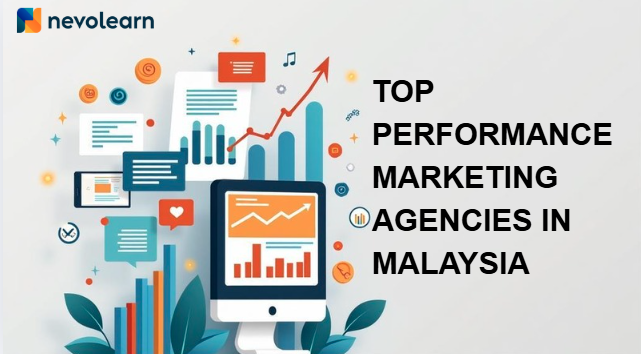
Up To 30% Off On All Courses*


 Digital Marketing vs Data Analytics: Which Career Pays More
Digital Marketing vs Data Analytics: Which Career Pays MoreIn today’s digital-first economy, two careers have become particularly attractive to professionals seeking strong growth, global mobility, and high income: Digital Marketing and Data Analytics. Both are cornerstones of modern business one drives customer engagement and brand reach, while the other extracts insights and intelligence from data to guide decision-making.
As organizations worldwide embrace digital transformation, marketing and analytics teams have moved from the sidelines to the core of strategy. Every digital ad campaign, every user interaction, and every data point feeds a feedback loop that fuels smarter business decisions. But if you’re planning your career, a question naturally arises: which career pays more digital marketing or data analytics?
To answer that, we’ll explore global salary benchmarks, career growth patterns, skill demands, and future opportunities across both domains. Beyond pay, we’ll also touch on the nature of work, progression, and industry dynamics to help you decide which path aligns best with your goals.
Global Salary Comparison: Who Earns More?
While salaries vary across regions and industries, global data from leading job portals and compensation platforms paints a clear picture of relative earning power between these two roles.
Digital Marketing Salaries
Digital marketers are essential to revenue generation — they plan campaigns, optimize ads, and manage multi-channel engagement. Globally, salaries range based on specialization, results delivered, and the scale of operations:
- Entry-Level: $45,000 – $65,000 per year
- Mid-Level (3–6 years): $70,000 – $100,000 per year
- Senior or Managerial Roles: $110,000 – $180,000+ per year
- Top-tier Roles (Head of Growth, CMO, VP Marketing): $200,000+ per year
Specialized digital marketers — particularly in performance marketing, SEO strategy, and growth marketing — can out-earn generalists by a large margin. Additionally, marketers who understand analytics and automation tools (Google Ads, Meta Business Suite, HubSpot, Salesforce Marketing Cloud) tend to command higher salaries globally.
Data Analytics Salaries
Data analytics professionals translate raw data into actionable insights. Because the role often demands technical expertise in tools such as SQL, Python, Power BI, and cloud data platforms, the compensation structure tends to start higher than marketing roles.
- Entry-Level: $55,000 – $75,000 per year
- Mid-Level (3–6 years): $90,000 – $120,000 per year
- Senior Analysts / Analytics Managers: $120,000 – $160,000+ per year
- Director / VP / Head of Data or Analytics: $180,000 – $250,000+ per year
Data professionals working in technology, finance, or product-based organizations usually earn toward the upper end of these ranges, especially when paired with expertise in machine learning or business intelligence.
Global Takeaway
Across the global job market, data analytics tends to offer higher starting salaries and a steeper upward trajectory due to the technical complexity and scarcity of advanced analytics talent.
However, digital marketing’s earning potential scales sharply at senior levels, especially when tied directly to business growth metrics (customer acquisition, retention, or revenue). Many marketing professionals who master both creative and analytical sides of growth can reach pay scales comparable to — or even exceeding — those of analytics professionals.
Career opportunities and growth paths
Digital Marketing common career ladder & niches
- Entry roles: Content writer, social media executive, SEO executive, PPC associate.
- Mid roles: Performance marketer, SEO manager, content lead, growth associate.
- Senior roles: Head of Growth, Marketing Manager, Product Marketing Manager, VP Marketing, CMO.
- Hot subfields: Performance/paid acquisition, growth hacking, programmatic advertising, e-commerce growth, product marketing, marketing analytics.
- Why choose it: Creative variety, rapid experimentation, visible campaign results, easier freelancing/consulting/agency options, entrepreneurship opportunities (e-commerce, affiliate marketing).
Data Analytics common career ladder & niches
- Entry roles: Junior Data Analyst, Business Intelligence (BI) analyst, reporting analyst.
- Mid roles: Data Analyst, Analytics Engineer, Product Data Analyst, Insights Manager.
- Senior roles: Lead Data Analyst, Data Science roles, Analytics Manager, Director of Analytics, Chief Data Officer.
- Hot subfields: Analytics engineering (dbt, data warehouses), product analytics, ML engineering, causal inference/experiment design, BI platform engineering.
- Why choose it: Strong technical skill set with cross-industry demand, clear transition paths into data science or leadership, high leverage in decision-making.
Which career earns more over time?
- Early-career: Data analytics often offers a higher starting median in many markets because of technical skill premiums.
- Mid-career: If a digital marketer specializes (growth, programmatic, paid acquisition) and can demonstrate scalable ROI, they can out-earn generalist analysts. However, analysts who gain engineering or ML-adjacent skills typically see faster salary jumps.
- Long-term/leadership: Both fields have top-earning leadership roles. A VP Growth or CMO at a high-growth company can earn as much as a Director of Data or Chief Data Officer. Compensation here depends more on company size, equity, and business impact than the discipline alone.
How to maximize earning potential in each field
For Digital Marketing
- Specialize in performance marketing (PPC, programmatic, paid social) or product marketing.
- Master analytics and attribution models (bridge marketing with data).
- Build a portfolio of campaigns showing ROI (CPL, CAC, LTV metrics).
- Learn tools (Google Ads, Meta Ads Manager, DSPs, GA4, Looker/Looker Studio).
- Consider agency experience for broad exposure and fast ramp in responsibility.
For Data Analytics
- Master SQL, Python/R, and at least one BI stack (Looker, Power BI, Tableau) and modern data stack tools (Snowflake, BigQuery, dbt).
- Learn experiment design and causal inference — highly valued in product analytics.
- Get comfortable with data engineering basics or collaborate closely with data engineers.
- Contribute to cross-functional decision-making to show business impact.
Non-monetary factors to weigh
- Work style: Marketers often do creative, campaign-driven work with external-facing deliverables. Analysts do problem-solving, reporting, and cross-functional partnership.
- Remote & freelancing: Digital marketing is often easier to freelance or consult remotely. Data analytics can be remote too, but many analytics roles are embedded in product teams.
- Learning curve: Data analytics may require steeper technical training; digital marketing can have faster practical wins through campaigns and experimentation.
Example scenarios
- You like coding, statistics, and building dashboards → Data Analytics (likely higher early median).
- You like storytelling, creative campaigns, and experimentation with content and ads → Digital Marketing (opportunities to scale into high-pay growth roles).
- You want best of both worlds → Product/Growth Analytics or marketing analytics roles that combine both skills (very high demand and pay).
Conclusion
Both digital marketing and data analytics are excellent careers with real upside. On average, data analytics shows a higher baseline salary in many markets because of the technical skills required and strong enterprise demand. However, learning digital marketing can particularly specialized growth and performance roles can match or exceed analytics compensation at senior levels, and offers easier freelancing, entrepreneurial routes, and creative variety.
So instead of asking only “which pays more?” think about what you enjoy, and what skills you’re willing to invest time in. If you love code and math, invest in analytics the market will reward you. If you love creativity and product-market fit, specialize in growth marketing and pair it with analytics skills to supercharge your value (and your pay). In 2025’s hybrid landscape, the highest-paid professionals are often those who bridge the gap: analysts who understand marketing, or marketers who can own analytics. That intersection is where you’ll find both strong impact and strong compensation.
Join Nevolearn’s digital marketing training and master the art of creating impactful customer journeys
Want to Level Up Your Skills?
EXPLORE BY CATEGORY
End Of List
No Blogs available Agile







